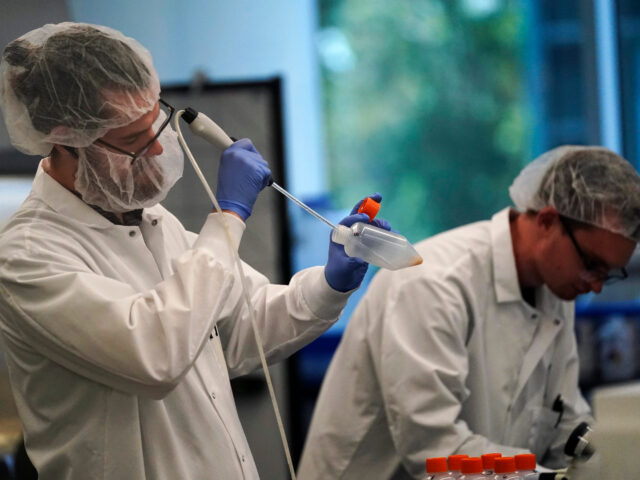The UK has become the first European country to approve lab-grown meat to be sold to the public, with the synthetically developed protein expected to appear on the shelves as early as this year.
British regulators have given the approval to UK-based firm Meatly to begin selling its lab-grown meat as dog food to the public. The approval paves the way for taste-test trials with dogs to begin for its new pet food, which will include proteins derived from cultivated chicken cells.
The co-founder and CEO of the startup, Owen Ensor told The Telegraph on Wednesday: “The European Union has traditionally been a more conservative regulator and the US is getting embroiled in food politics – unnecessarily, in my opinion. So the UK can really step up here.
“There has been an opportunity with Brexit, both legally with the disengaging from the EU process, but also from a government perspective. There’s been a lot of enthusiasm for innovative solutions and I think that we’ll see that continue with the current Government.”
The company, founded in 2022, said that it is planning to license its technology to other firms in Britain, opening the door to the possibility of lab meat being sold to humans in the near future, as the process to produce it would be “very similar”.
Ensor said that because around 20 per cent of all meat eaten per year globally went to pets, his company would focus on dog food to confront the “huge ethical and sustainability challenges” in the market.
“There’s a real challenge for people who love animals so they want to get a pet but that requires killing other animals to feed those pets. We want to make this as available as possible,” he said.
Ensor claimed that lab-grown meat is “dramatically more sustainable” than animal husbandry and doesn’t require the slaughter of livestock, there are questions surrounding the actual impact of the synthetically produced food, with some studies claiming that there might be more emissions involved in its production than traditional animal rearing.
Nevertheless, the anti-meat agenda has been a cause-de-jour of the globalist left in recent years, notably from the World Economic Forum. The WEF has been at the forefront of promoting allegedly “climate beneficial foods” like as algae, cacti, and seaweed as well as the introduction of bug-based protein into the human diet.
However, there has been a growing pushback against new-age food sources, including from Italian Prime Minister Giorgia Meloni, who banned lab-grown meat in her country last year. Meloni has argued that the ban is necessary to protect the high standards of Italian cuisine and to ensure that all people in the country know where their food comes from.

COMMENTS
Please let us know if you're having issues with commenting.